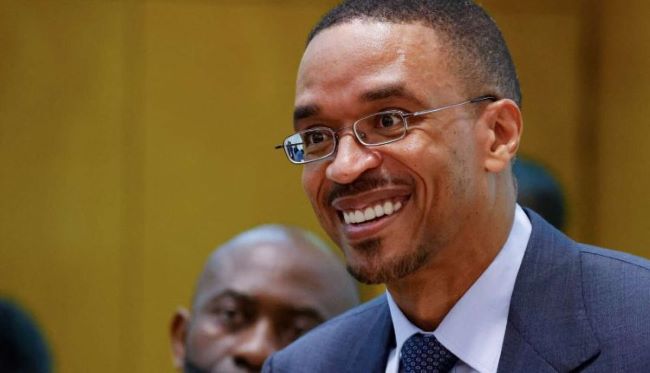Franck Biya, in the shadow of his corrupt and ailing father
He is not officially a candidate for anything and has never publicly leaked the slightest ambition. But her slender silhouette is increasingly visible in official meetings, on social networks and the images distilled by the Cameroonian presidency. A new presence which inevitably raises questions in a country where discussions around the succession of the “captain” are less and less theoretical: is Franck Biya positioning himself to inherit the presidential chair occupied for forty years by his father Paul, 90 years old since February 13?
In central Africa where, from Chad to Gabon, via the Democratic Republic of Congo (DRC), political dynasties have become a norm, seeing Franck Biya, 52, appearing behind the scenes of the Cameroonian presidency is a sign, even if everyone will be careful not to consider it as a dubbing. We can no longer count the ambitious people and putative successors struck down by the courts when their intentions became too clear. Kondengui prison in Yaoundé has become, for more than ten years, the place of residence of many ministers and secretaries general of the presidency.
Franck Biya remained in the shadows. Eldest son of the indestructible president and his first wife, Jeanne-Irène, who died in 1992, he did part of his studies at the University of South Carolina, then lived for a long time in France. A businessman, he invested, among other things, in real estate and forestry.
“He doesn’t waste money on nightclubs”
His discretion did not prevent non-governmental organizations (NGOs) from looking into his affairs. In 2012, Afrione Cameroun, one of his companies, was cited in a case of embezzlement of public funds. In 2020, Greenpeace claimed that it was “the minority shareholder” of South Cameroon Hévéa (subsidiary of Halcyon, global rubber giant), a company that the nature protection NGO accused of deforestation of several thousand hectares of forests. He never reacted to these accusations.
The person concerned says nothing about the intentions attributed to him by chroniclers from the Etoudi palace, but does nothing to deny them either. When Emmanuel Macron sets foot in Yaoundé in July 2022, the road from the airport to the capital is dotted with banners and signs calling for his candidacy. The authorities will quickly have them removed, but no observer will miss the handshake between Franck Biya and the French leader in the corridors of the presidency. In November, another appearance, this time in Garoua, the capital of the Northern region, to celebrate the forty years of Paul Biya’s accession to the presidency. The opportunity for a first contact with the activists of the Cameroon Peoples Democratic Movement (CPDM), the ruling party.
Culled from Globe Echo




